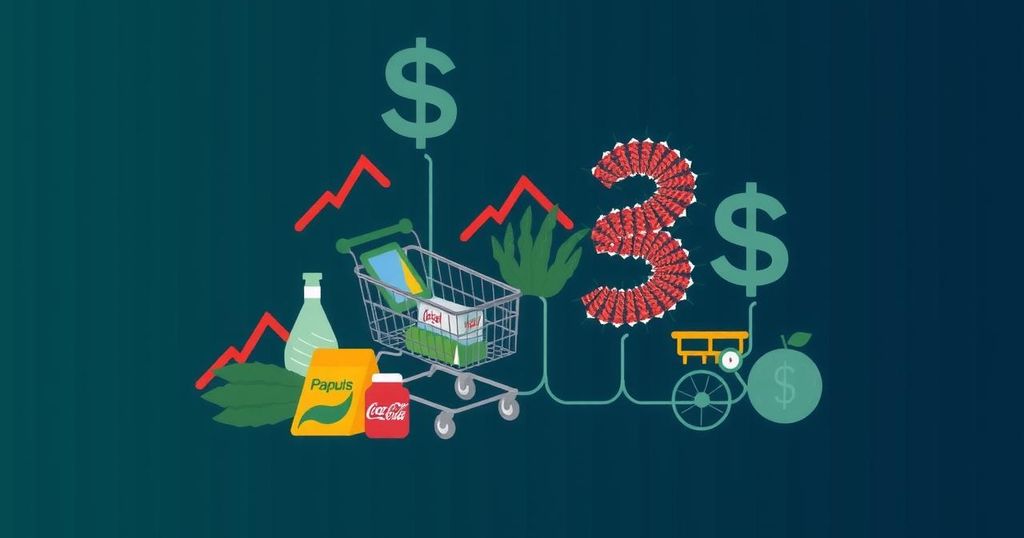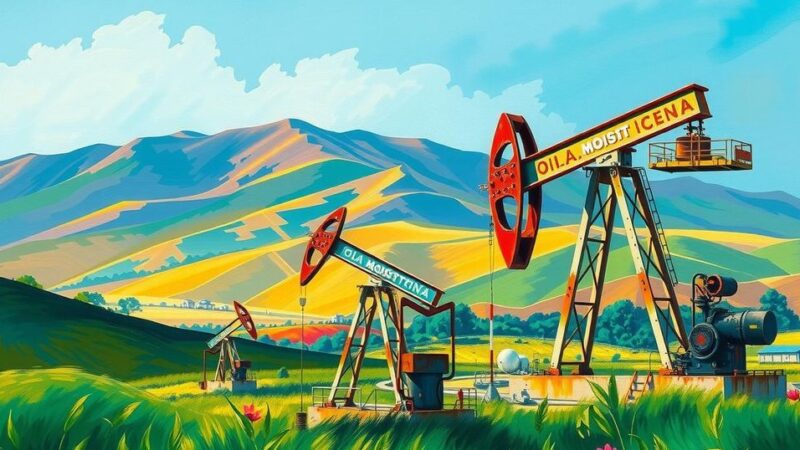The article analyzes how increasing grocery prices have influenced political landscapes, particularly highlighting that 75% of Republican voters have faced economic hardships due to inflation, in contrast to 25% of Democrats. This phenomenon occurs globally, with significant price increases in food affecting electoral outcomes. The disconnect between economic indicators and household experiences necessitates urgent policy changes to mitigate inflation and build resilient supply systems in response to climate change.
In recent electoral developments, soaring prices of essential goods such as food and energy have played a pivotal role in political outcomes, particularly in the United States. Approximately 75% of Republican voters reported experiencing significant hardships due to these inflationary pressures, contrasting sharply with only 25% of Democrats expressing similar sentiments. This disparity highlights the discontent among voters when reflecting on their economic conditions compared to previous years, particularly during the Trump administration. Globally, price surges have also proven detrimental to incumbent parties, as evidenced in India where Prime Minister Narendra Modi’s party lost its parliamentary majority amidst significant food price inflation—reported to be around 8%—and the rising costs of staple items such as rice. Furthermore, Japan faced analogous challenges with its conservative coalition losing its majority following unprecedented increases in rice prices, attributed to both climatic adversities and the weakening yen. The rising costs of food have not been confined to specific regions; worldwide agricultural prices have surged due to climate change, droughts, and extreme weather events affecting production systems. Notably, olive oil prices in the UK have spiked by 90% over two years, butter prices in Europe have surged by over 80%, and orange juice prices in the United States have doubled, severely influencing consumer purchasing power. The economic metrics often utilized to gauge inflation do not accurately reflect the lived experiences of many households, particularly those with lower incomes who disproportionately spend more on essentials. Policies aimed at combating inflation, such as raising interest rates, do not address the root causes of food supply shortages and cost increases. They may inadvertently exacerbate the financial strain on already vulnerable populations. To address these multifaceted challenges, the author proposes three strategic actions: implementing wealth taxes on those profiting from inflationary practices, abandoning outdated economic approaches that fail to accommodate for supply shocks, and reorienting agricultural production towards localized systems to bolster resilience against climate-related disruptions. By prioritizing essential items and supporting communities in adapting to these challenges, a more stable economic environment can be achieved.
The article by James Meadway discusses the significant impact of rising grocery prices on recent political elections, particularly underscoring how these economic conditions have influenced voter sentiment and behavior. It highlights the correlation between inflation in essential goods and the challenges faced by incumbent political parties worldwide, providing examples from various countries. The author emphasizes the disconnect between official economic indicators and the lived realities of households, particularly those with lower incomes, thereby necessitating a reevaluation of economic policies to address these disparities effectively.
In conclusion, the soaring prices of essential goods have profound political and economic ramifications globally, affecting voter sentiments and election outcomes. The need for strategic intervention through targeted wealth taxes, revised economic policies, and reinforced supply systems is crucial to mitigate inflation’s adverse effects and enhance resilience against climate change. By prioritizing the well-being of communities and reevaluating current economic measures, a more equitable and sustainable economic landscape can emerge.
Original Source: www.theguardian.com






